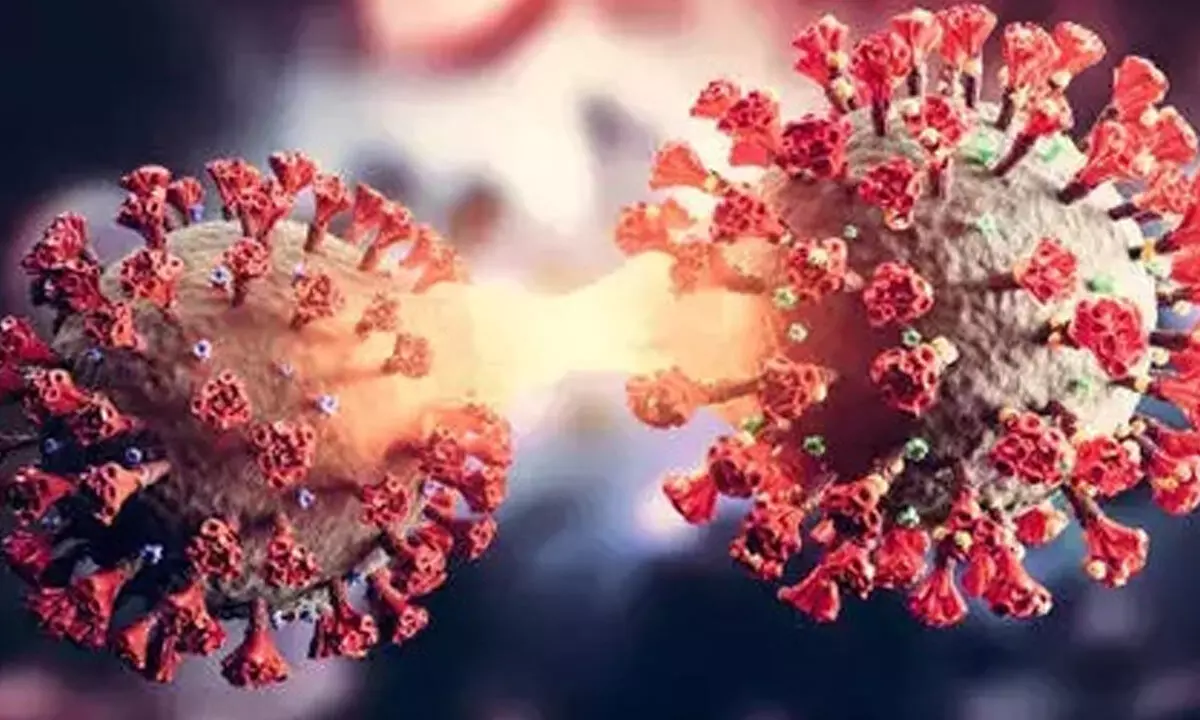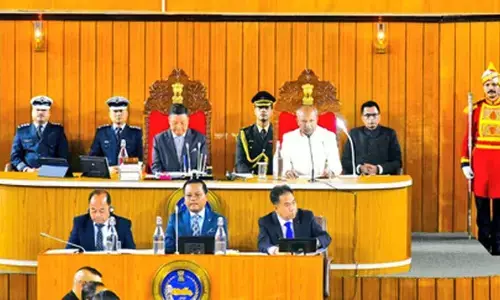India sees rise in cases of Covid, flu; docs advise not to panic
Share :

Even as India is currently seeing a significant rise in cases of Covid-19, flu and RSV, doctors on Friday advised not to panic.
New Delhi: Even as India is currently seeing a significant rise in cases of Covid-19, flu and RSV, doctors on Friday advised not to panic.
India recorded 640 fresh Covid-19 infections in 24 hours taking the number of active cases to 2,997 from 2,669 the day before, according to the Union Health Ministry data on Friday.
The surge is believed to be due to JN.1, from the lineage of the Omicron variant of Covid.
It is a descendent lineage of BA.2.86, with the earliest sample collected on August 25, 2023.
In comparison with BA.2.86, JN.1 has the additional L455S mutation in the spike protein.
"Current surge in reporting of Covid-19 cases are mostly attributed to JN.1 sub-variant of Omicron variant. Infection severity is reported as similar to previous cases reported due to Omicron. Symptoms reported are mostly restricted to upper respiratory tract infections, and no serious symptoms have been reported so far. Overall there is no need to panic. Current surge in cases also attributed to surge in transmission of respiratory viruses during winter season. Most of the cases are mild in form," Harshal R Salve, Additional Professor, centre for community medicine at AIIMS, Delhi, told IANS.
"It looks like there is some spike in protein mutation. And there is a possibility that it may be a little bit more transmissible than the Omicron variant," added Dr. Rahul Pandit, Chair, Critical Care, Sir H N Reliance Foundation Hospital.
JN.1, first detected in Luxembourg in August, is currently present in about 41 countries.
Due to its rapid spread, the World Health Organization (WHO) classified JN.1 as a separate variant of interest (VOI), from the parent lineage BA.2.86.
It was previously classified as VOI as part of BA.2.86 sublineages.
The WHO said JN.1 could increase the burden of respiratory infections in many countries.
The doctors said that people with existing diseases such as COPD, asthma, and heart disease are vulnerable to severe diseases due to Covid infection.
They called for continuing surveillance activity through the health system and healthy behaviour education to the community.
In the latest bout of infections, the country has reported seven Covid deaths -- three from Kerala, two from Karnataka, one from Punjab and one from Rajasthan.
"JN.1 variant seems to be spreading all over the world, including in India. Though it's spreading very fast but severity is almost the same as that of the original Omicron. Deaths are happening only in cases with poorly controlled comorbidities, but not in absolutely healthy children or adults (as per feedback from other countries who are viewing surge in Covid)," Dhiren Gupta, Pulmonologist and senior consultant with the paediatric department at Sir Ganga Ram Hospital, told IANS.
Navin Kumar, Microbiologist, Manipal Hospital, Dwarka, explained that although some changes have happened in the genetic makeup of this virus from the original Omicron, it is not very significant in terms of causing increased mortality or morbidity.
Meanwhile, due to the dipping temperatures many places are seeing a surge in seasonal infectious diseases like influenza A, B and also RSV (respiratory syncytial virus). "Currently, we are viewing a sudden surge in cases due to influenza and RSV -- these infections looks more dangerous than Covid. In general, as winter is approaching these viral infections are going to rise, better to wear a mask if someone is having comorbidities, especially with old age, and avoid going to crowded places," Gupta said.
"There are other circulating viruses at this moment, like influenza A, B, RSV, so these viruses also cause similar symptoms and winter is known to cause viral respiratory tract infections," Dr Kumar told IANS.
"Most important is to not panic. But we need to be cautious, and follow infection control measures in terms of cough etiquette, and using masks in public places," he added.










